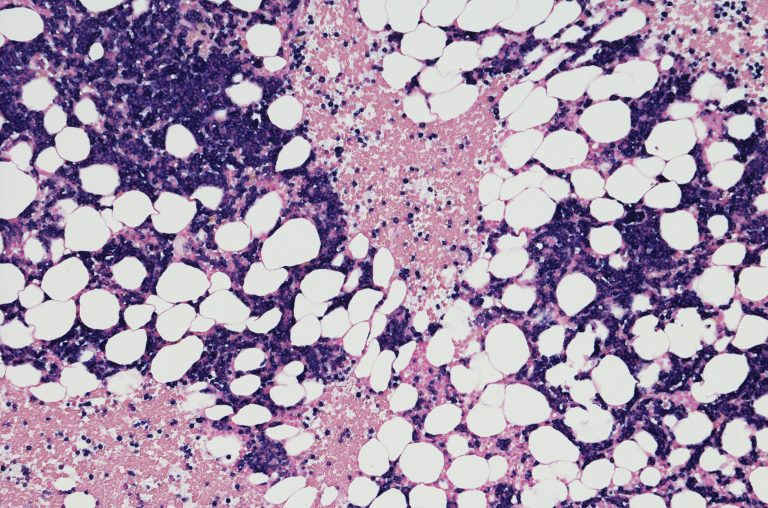
White patients with diabetes and multiple myeloma have lower overall survival compared to Black patients with the same illnesses, according to a study published in Blood Advances. While research has shown that patients with myeloma and diabetes have poorer survival, this is the first to show racial differences in survival outcomes for white versus Black patients with both conditions. The study also revealed that diabetes appears to fuel multiple myeloma growth in a mouse model, suggesting it is an important underlying contribution to this type of cancer progression.
Diabetes is much more common in Black individuals versus white individuals, and researchers conducted the study to understand whether this difference may play a role in health outcomes among patients with both conditions.
The researchers conducted a retrospective study, collecting data from electronic healthcare records of 5,383 patients with multiple myeloma from two academic medical centers. Fifteen percent of patients included had a diabetes diagnosis (12% of white and 25% of Black patients). The cohort was predominantly White (81%), male (56%), > 60 years (65%) and with an elevated BMI (68%). The Black patients were younger than White patients, with 43% of the Black population and 33% of the White population being ≤60 years of age. Despite being younger, Black patients had twice the rate of diabetes (25%) compared to the White patients (12%) patients.
Regardless of race, the team observed that among patients with myeloma, those with diabetes had poorer survival rates than those without.
“But we were surprised to find that white patients had worse survival with diabetes compared to no diabetes, whereas we did not see this difference in the Black population,” says first author Urvi Shah, MD, a multiple myeloma specialist at Memorial Sloan Kettering Cancer Center.
Though the team could not definitely explain the reasons for this result, they suggest several possibilities. First, the Black population in this study was younger than the white cohort. “It could be as simple as the Black patients survived longer because they were just younger to start with,” adds Shah, and therefore they may tolerate multiple myeloma treatments better than older individuals. Second, while Black individuals are at higher risk of developing diabetes and obesity, there may be genetic or racial differences why it does not affect their outcomes as much compared to the white population. Another contributing factor may be a smaller Black population in the study.
To learn more about how diabetes impacts multiple myeloma growth, the team used genetically engineered non-obese mouse models. After studying the biological mechanisms underlying tumor growth in these mice, researchers found that an insulin-related signal was overactivated in the diabetic mice, leading them to believe that higher insulin levels associated with diabetes may accelerate cancer growth.
“We showed that mice with diabetes had faster multiple myeloma progression, shorter survival, and more rapid tumor growth than mice without diabetes,” adds Shah. “That shows that diabetes does affect survival and risk of multiple myeloma cancer.”
Aside from the as-yet unexplained racial differences in survival, the team emphasizes that the study underlines the fact that uncontrolled diabetes increases the risk of poor outcomes.
“As an oncologist or other healthcare provider, it is important to be watchful to have patients’ diabetes under better control,” Shas says. Her team is conducting a prevention pilot study in patients with diabetes showing that a high-fiber, plant-based diet reduces insulin resistance in all patients and some patients were able to wean off insulin. Dr. Shah suggests putting diabetes into remission or reversing it—whether through lifestyle changes or medication—could reduce the overall risk of future cancer and improve survival.
“Diabetes can affect outcomes as much as just myeloma in itself,” she adds. “We have to understand that diabetes in itself is not a benign diagnosis; it can affect survival. So it’s something to focus on getting better controlled and making healthier lifestyle change.”













